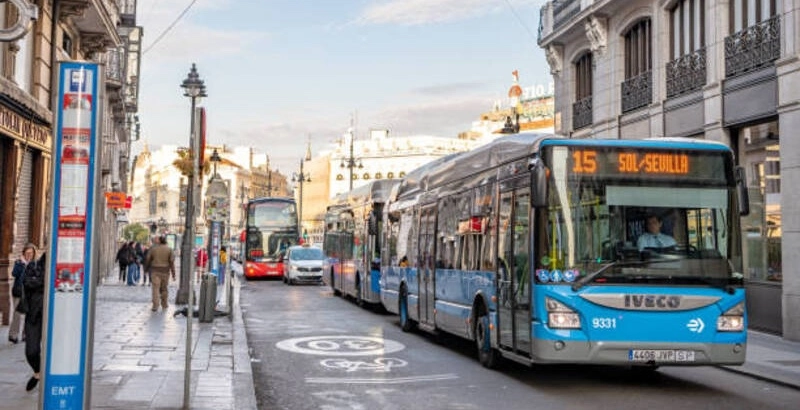Recently, it has been revealed that the Government will finally resume the Sustainable Mobility Law project, with expectations for its approval in February.

This initiative has been pending since 2021 when the then Ministry of Transport, Mobility, and Urban Agenda began its drafting.
The early elections prevented the project from being approved and coming into effect last year.
In a conversation with Mobility Portal España, Carlos Rico, Policy Officer at Transport & Environment (T&E), states: ‘We are concerned that the Government is presenting the original draft of the Sustainable Mobility Law.’
It is worth noting that the final text was drafted in 2022 and has the main objective of decarbonizing transportation in Spain, responsible for 27 per cent of greenhouse gas emissions.
This falls within the measures of the Government’s Recovery, Transformation, and Resilience Plan.
In recent years, T&E, along with other NGOs, unions, and organizations, has advocated for proposals to improve the project.
Therefore, they hope that the original draft will not be presented, especially considering the discussions held with various political groups that reached consensus on several options to enhance the text.
“There are many sections that we believe do not have sufficient ambition,” Rico emphasizes.
And he anticipates that in the time remaining until February, when the Law will be presented to the Council of Ministers, T&E will seek to “improve as much as possible.”
Among the proposals they offer to promote sustainable mobility and decarbonization of transportation is electrification, mainly in the road transport sector.
Therefore, it is essential to continue deploying charging infrastructure, especially in rural municipalities that are most affected by the lack of chargers.
According to the Spanish Association of Automobile and Truck Manufacturers (ANFAC), the country has 25,180 public charging points.
Of these, 13,978 are located in urban areas and 11,202 in interurban areas.
It is important to highlight that 8,869 of these are currently out of service.
“We propose that the Government, through the Sustainable Mobility Law, develop a national plan for the deployment of charging points in municipalities with less than 30,000 inhabitants and in low-density population areas,” says Rico.
This is to ensure the installation of at least one charging point in all towns with between 2,000 and 30,000 inhabitants.
Otherwise, only Spaniards residing in cities will be able to access public charging, leaving those living in rural areas dependent on private charging.
At this point, it is also necessary to publish the National Charging Point Map, providing electric vehicle users with the assurance of knowing the location of chargers, facilitating their journeys.
The sector has been waiting for the approval of the Sustainable Mobility Law for a long time, especially considering that Spain is one of the few European countries that has not yet implemented it.
“It must be done immediately, both due to the demands of Europe and the needs of the country,” emphasizes the T&E representative in this regard.
And he emphasizes: “We must not miss the opportunities offered by this Law to transform our mobility and significantly reduce transportation emissions, which is the sector that has the most impact.”
T&E will drive several projects during 2024
In recent years, T&E has shaped some of Europe’s most important environmental laws. Their goal is to achieve an emissions-free mobility system that is affordable and has minimal impact on health, climate, and the environment.
Looking ahead to the newly started year, the NGO already has several projects to promote during 2024.
The update of its charging point map with new data for this year is one of them.
However, it will place special emphasis on proposing a reform of the Moves Plan that aligns with the sector’s needs.
One of the most demanded modifications is the review of the aid allocation process.
Currently, the waiting times to receive funds are too long.
Therefore, T&E proposes that these be received through tax deductions, culminating in a direct grant to the electric vehicle buyer.
“The priority in Spain right now is to catch up with electrification since it is one of the most delayed countries in this regard, representing a challenge in terms of emissions and industrial competitiveness,” he insists.
This is crucial to attract investors in the field of electromobility.








